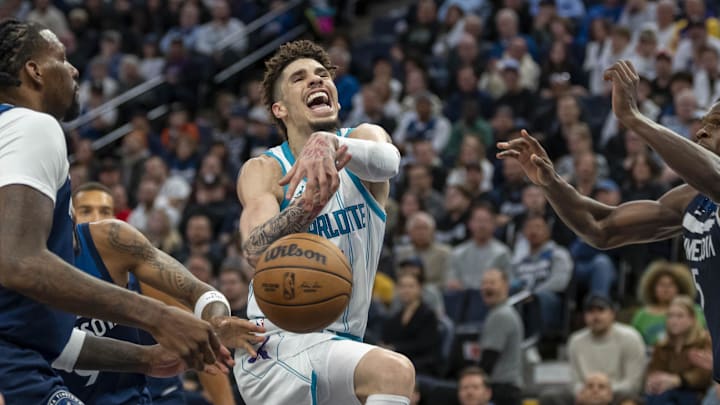The Charlotte Hornets suffered their worst loss of the season on Monday, falling to the Minnesota Timberwolves 114-93.
It looked like the Hornets would make the game competitive early in the first quarter. However, they were unable to sustain their strong showing behind Taj Gibson's inspired play in the first minutes of the meeting.
Instead, they fell behind by as many as 28 in the fourth quarter. With the defeat, Charlotte has lost five of its last six meetings to dip further in the standings.
Hornets can't just rely on long-distance shots
Becoming one of the Eastern Conference's top teams and contending for a playoff spot in the 2024-25 campaign remains a long shot for the Hornets. After all, they still have a young core, and developing them should be a priority for the front office. The injury bug has also stung the squad hard early in the season.
Yet, the way it lost to the Wolves might be a bit of a setback for a team that has shown significant progress on both ends of the court in the first week of the regular season.
On offense, Charlotte has been one of the league's deadliest 3-point shooting squads. Before the beatdown in Minnesota, it had been averaging 17.5 makes from beyond the arc per game (second behind the Boston Celtics) and connecting on 39.5 percent of such attempts (fourth among all teams).
Going up against the Wolves' stingy defense exposed the Hornets' offensive limitations, though. The opponent hounded their ball-handlers and didn't give their shooters enough space to let it fly comfortably. As a result, they shot just 10-42 from downtown, good for 23.8 percent. Their top offensive options struggled from long range, with LaMelo Ball and Brandon Miller combining to shoot 4-15 and Tre Mann not even making a single 3-point attempt.
If only the team had other reliable means of getting buckets, it likely would have stood a better chance of upending the host and snapping a two-game losing streak. Charlotte did put up 24 fastbreak points, nearly double its season average. But the Wolves forced it into low-quality shots all night long. The bench unit not stepping up as it had usually done in this campaign also didn't help.
Such has been the story of the early season for the Hornets. Despite displaying massive improvements from 3-point land (and second-chance points), they have mostly been inconsistent in other areas of their offense.
The good news is that they have plenty of time to turn things around. It's also worth noting that Miller has missed some contests, while Mann is still experiencing growing pains in his first year as one of the top offensive options. If they can avoid health issues and develop further, Ball won't need to carry Charlotte on his shoulders.
